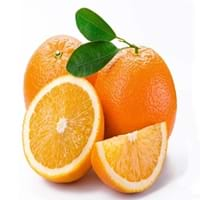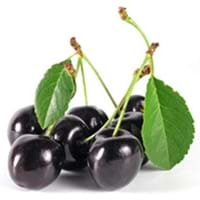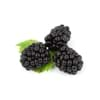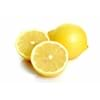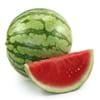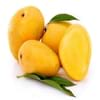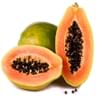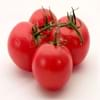Health Benefits
Arthritis treatment, Cancer prevention, Increases metabolic rate, Kidney stone treatment, Lower blood pressure, Prevents constipation, Prevents diabetes, Strengthening of bones, Ulcer treatment, Weight loss properties
Anti-aging benefits, Anti-inflammatory properties, Arthritis treatment, Cancer prevention, Helps body to rest and sleep, Lower blood pressure, Prevents diabetes, Prevents strokes, Reduces risk of heart disease
General Benefits
Boosts immune system, Controls blood pressure, Digestive aid, Improves eye vision, Maintains healthy cholesterol level
Fights against infections, Fights Tooth Decay, Helps in weight loss, Relieves pain, Treatment of migraine
Skin Benefits
Anti-aging benefits, Brightens and lightens complexion, Hydrates skin, Skin rejuvenation, Treatment of acne, Treatment of dark spots
Anti-aging benefits, Fairness, Hydrates skin, Prevents skin cancer, Skin repair, Treatment of acne
Hair Benefits
Good conditioner, Prevents hair loss, Regulates hair growth, Treatment of dandruff
Cure for hair loss, Increasing hair volume, Prevents hair loss, Strengthening of hair
Allergy Symptoms
Abdominal pains, Breathing difficulty, Coughing, Diarrhea, Drop in blood pressure, Fainting, Runny nose, Skin rash, Sneezing, Swelling of mouth, tongue or lips, Vomiting
Abdominal cramps, Anaphylaxis, Diarrhea, Hoarseness, Itchy eyes, Nausea, Pollen allergies, Sore eyes, Vomiting, Watery eyes, Wheezing
Side Effects
Abdominal cramps, Diarrhoea, Weight gain
High doses of black cherry bark can be poisonous and even fatal.
Lactating Women
No
Not Available
Best Time to Eat
As a snack in the late afternoon, Don't consume at night and before bed, Eat the fresh ones, avoid mixing with any other foods, don't eat after meal., Morning time (before lunch), Strictly avoid empty stomach
Best if taken as a breakfast (or empty stomach), Don't eat after meal, Morning time (before lunch)
Vitamin B1 (Thiamin)
Not Available
Vitamin B5 (Pantothenic Acid)
Vitamin B6 (Pyridoxin)
Not Available
Vitamin B9 (Folic acid)
Not Available
Vitamin C (Ascorbic Acid)
Not Available
Vitamin E (Tocopherole)
Not Available
Vitamin K (Phyllochinone)
Not Available
Lutein+Zeaxanthin
Not Available
Phytosterol
Not Available
Calories in Fresh Fruit with Peel
Calories in Fresh Fruit without Peel
Not Available
Calories in Frozen Form
Not Available
Calories in Dried Form
Not Available
Calories in Canned Form
Not Available
Calories in Juice
Not Available
Calories in Jam
Not Available
Calories in Pie
Not Available
Varieties
Sweet Orange - Persian orange, Navel orange, Valencia orange and Blood orange. Sour Orange - Seville orange, Bergamot orange, Chinotto orange and Daidai.
alabamensis, capuli , eximia and hirsuta
Inside Color
Orange
Maroon
Taste
Sweet-Sour
Sweet-Sour
Origin
South-Eastern Asia
North America
Soil Type
Loam, Sandy loam
Not Available
Climatic Conditions
Hot
Cold
Facts about
- There are around 600 varieties of oranges available worldwide.
- More than 1 plant can grow from a single orange seed.
- Orange and orange blossoms are a symbol of love.
- Orange tree is usually propagated by grafting.
- Black cherry is deciduous tree that belongs to the family of roses.
- Some foods made from Black Cherry fruit include jelly and wine.
- Inner bark of black cherry is used in the manufacture of cough syrup.
Top Producer
Brazil
Turkey
Other Countries
China, Egypt, India, Italy, Mexico, South Africa, Spain, Turkey, United States of America
Austria, Bulgaria, Chile, China, France, Greece, Iran, Italy, Macedonia, Poland, Romania, Russia, Serbia, Spain, Syria, Ukraine, United States of America, Uzbekistan
Top Importer
Germany
France
Top Exporter
Spain
Turkey
Botanical Name
Citrus sinensis
Prunus Serotina
Synonym
Citrus aurantium L. var. dulcis
wild black cherry, rum cherry and mountain black cherry
Subkingdom
Tracheobionta
Tracheobionta
Division
Magnoliophyta
Magnoliophyta
Class
Magnoliopsida
Magnoliopsida
Species
C. × sinensis
P. serotina
Generic Group
Citrus fruit
Cherry
Compare Orange and Black cherry
It is important compare Orange and Black cherry as both the fruits have a different nutritional value. Their comparison can be done on the basis of their vitamin and mineral content, calories, benefits as well as characteristics, making it easier for us to choose the best fruit for our diet. Their general health benefits are as follows:
Orange Benefits: boosts immune system, controls blood pressure, digestive aid, improves eye vision and maintains healthy cholesterol level.
Black cherry Benefits: fights against infections, fights tooth decay, helps in weight loss, relieves pain and treatment of migraine.
Fruits are also used as a remedy for various hair problems. The hair benefits of Orange are: good conditioner, prevents hair loss, regulates hair growth and treatment of dandruff and hair benefits of Black cherry are: cure for hair loss, increasing hair volume, prevents hair loss and strengthening of hair. Some fruits are known to cause allergic reactions. The allergy symptoms of first fruit are: abdominal pains, breathing difficulty, coughing, diarrhea, drop in blood pressure, fainting, runny nose, skin rash, sneezing, swelling of mouth tongue or lips and vomiting and the symptoms of second fruit are: abdominal cramps, anaphylaxis, diarrhea, hoarseness, itchy eyes, nausea, pollen allergies, sore eyes, vomiting, watery eyes and wheezing. Get sorted Orange vs Black cherry comparison with the help of fruit comparison tool by fruitvs.com.
